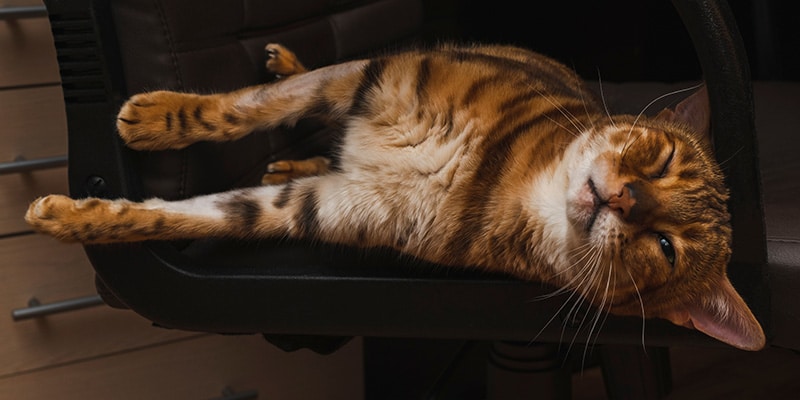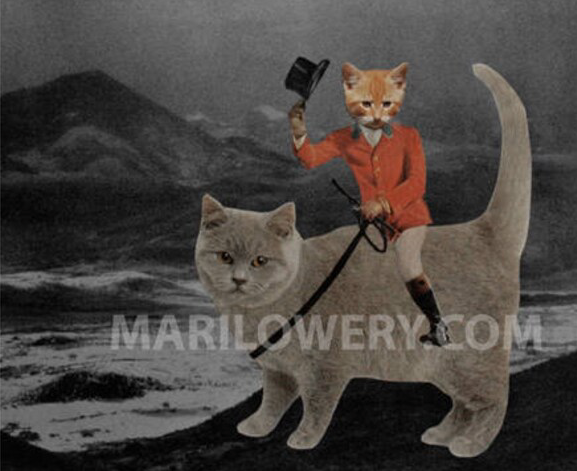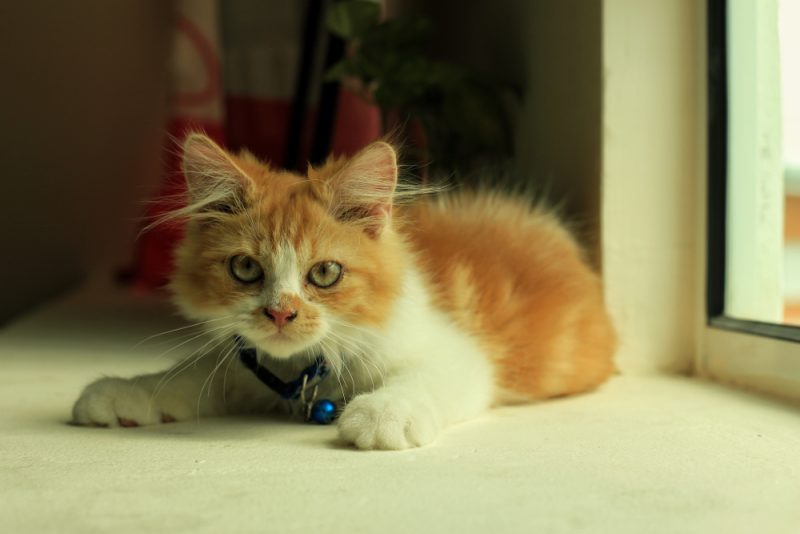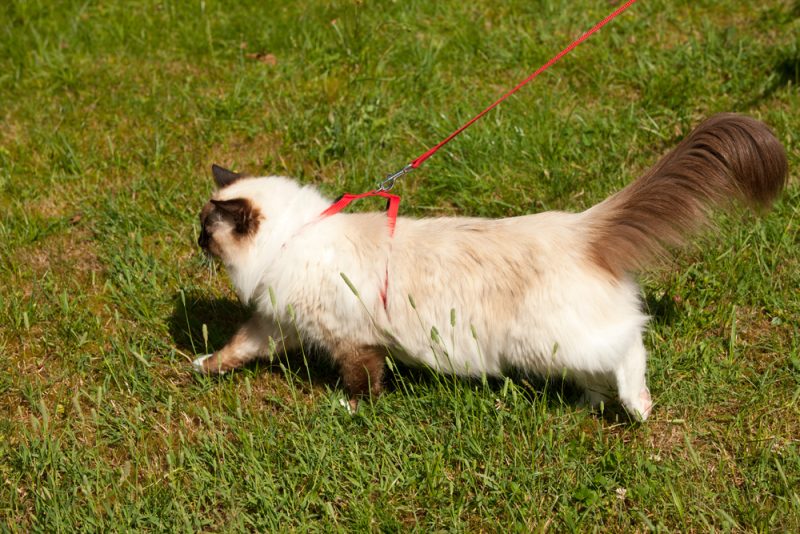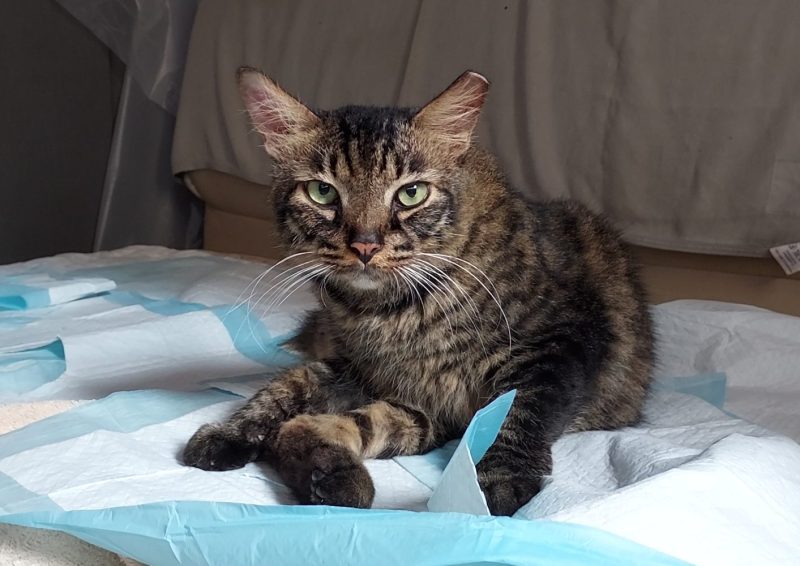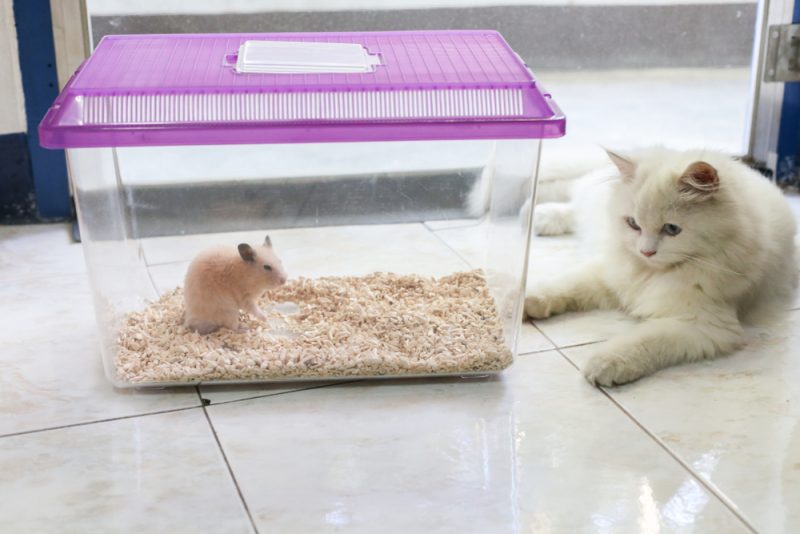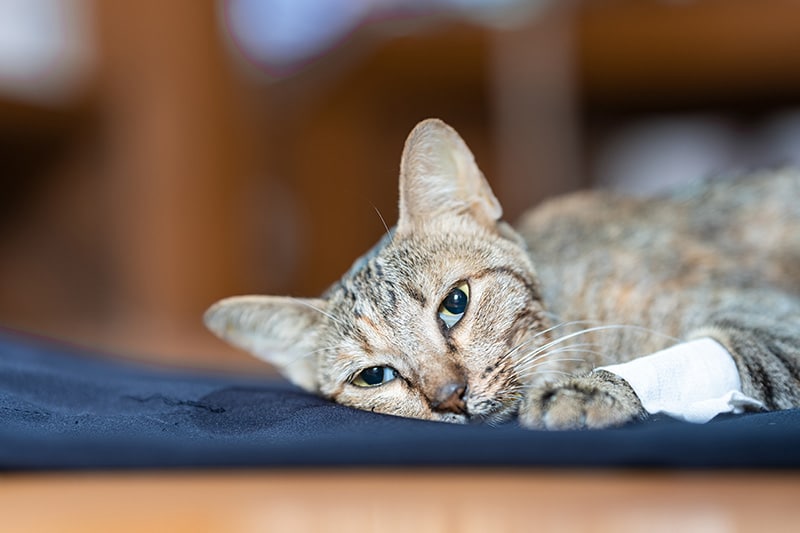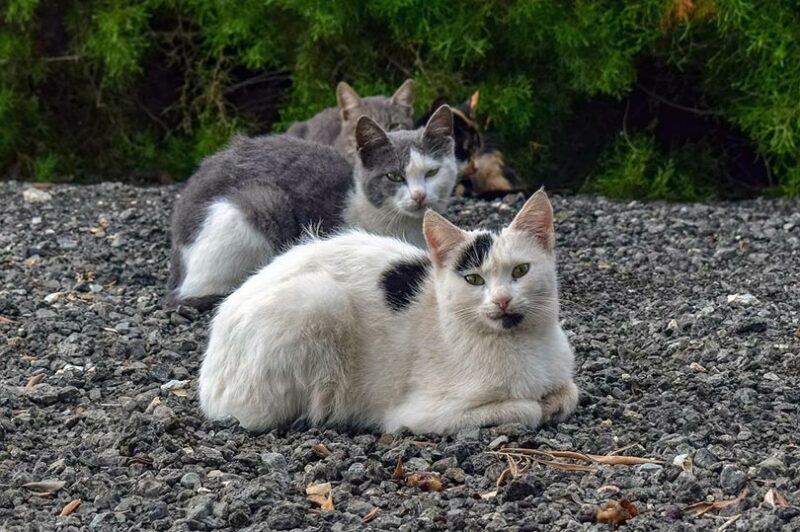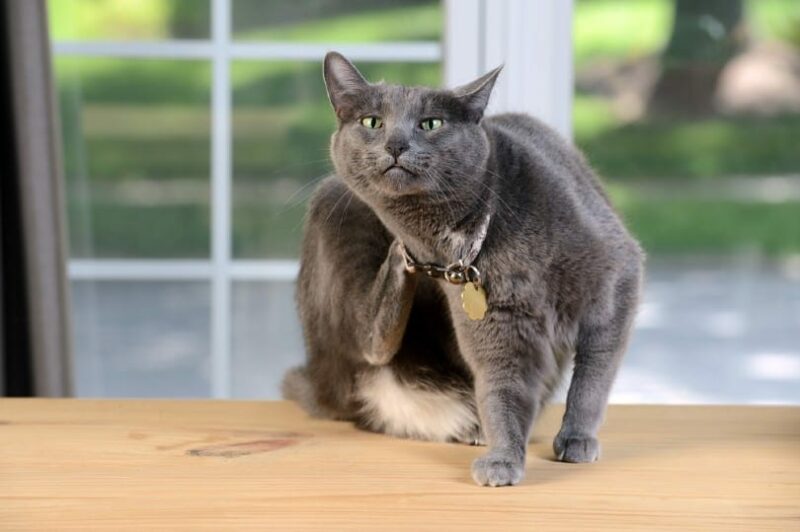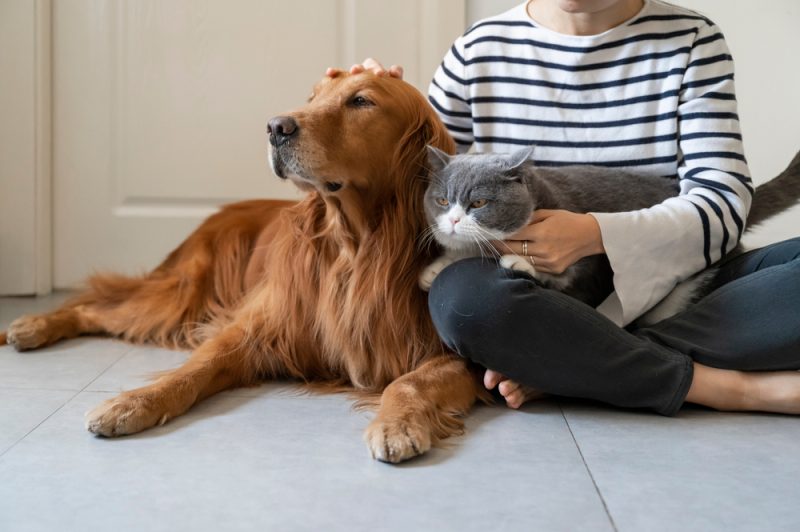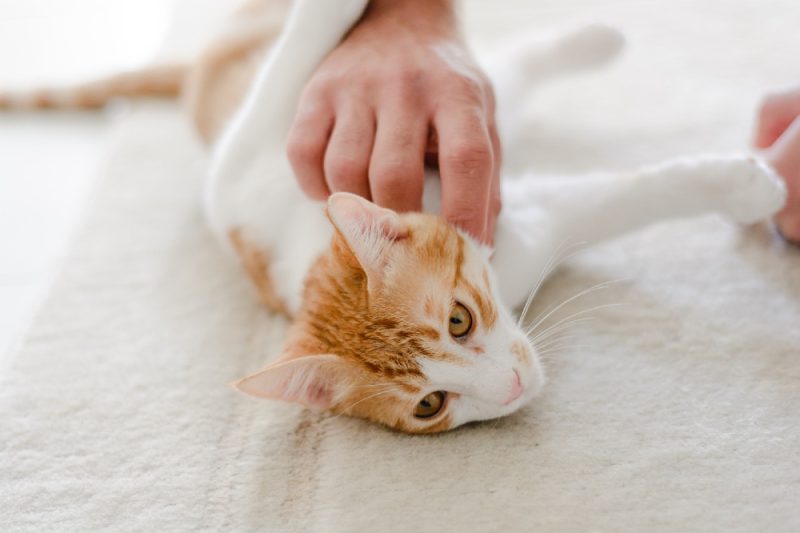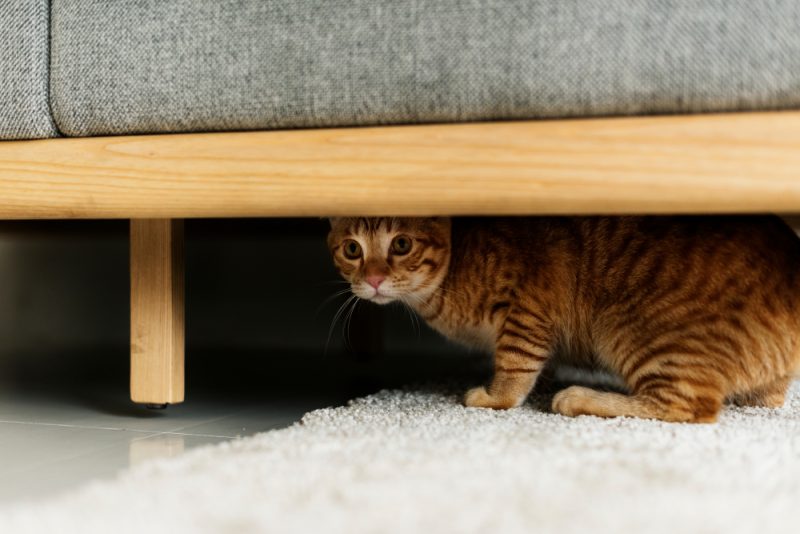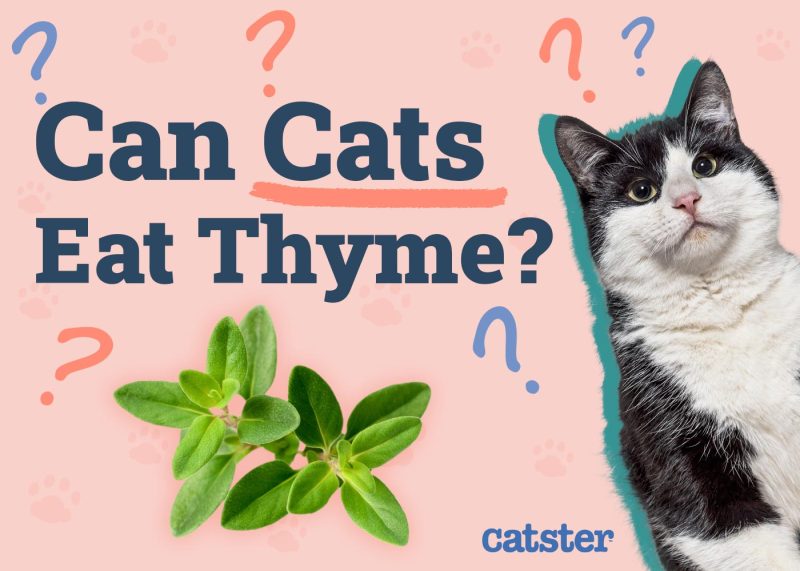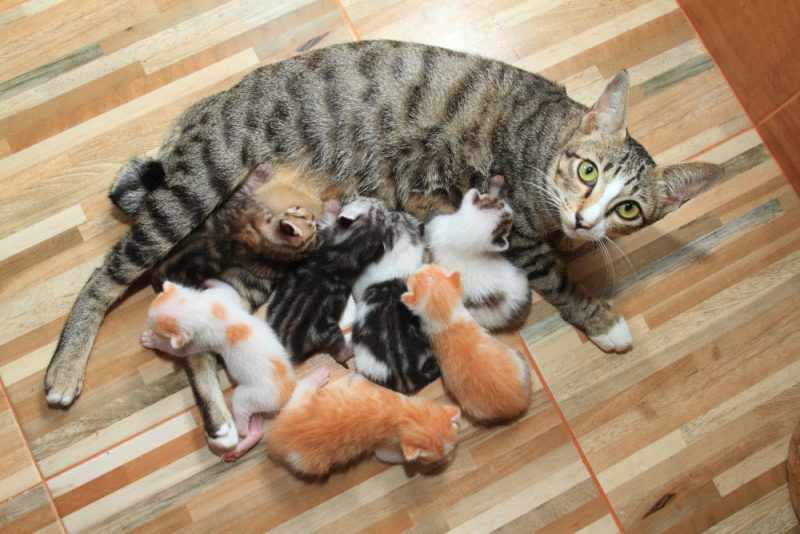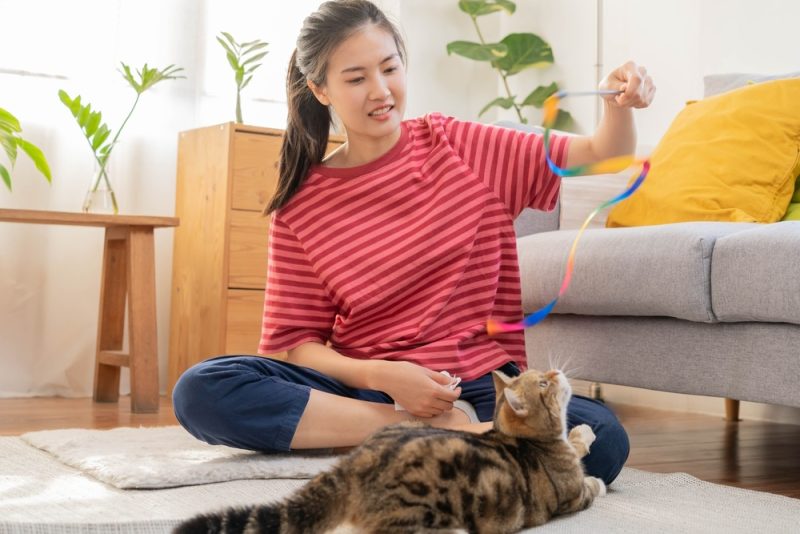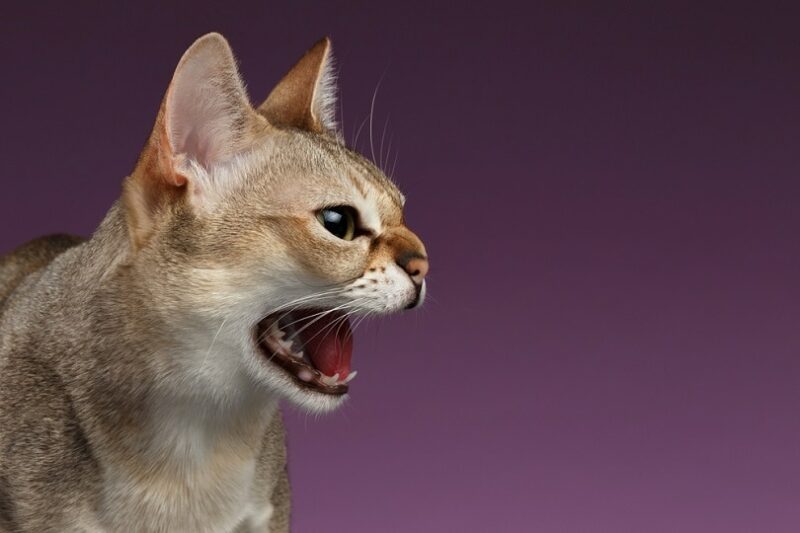All cat lovers will be aware that our cats have many unique ways of communicating with us. Owners will be familiar with the affectionate head rub or “boop” when they are feeling playful or wanting some attention. Cats frequently rub their head against things to spread chemical messengers called pheromones around. They use these to communicate with other cats and exchange useful information.
However, if you notice your cat repeatedly pressing their head against things, or if they are standing still and holding their head against an object, this is usually a sign of something going wrong with their nervous system. Read this vet-written guide to get the low down on head pressing, and what you can do about it if your cat is doing it.

What Is Head Pressing in Cats?
Head pressing is a compulsive behavior that cats display. It occurs when cats hold or press their heads at an angle against a solid object such as a wall or hard surface. There is no obvious reason the cat is holding their head against the solid object, and they do not seem to achieve anything by doing it.
There is a distinct difference between head butting and head pressing. Head butting is a friendly affectionate act that cats display when they feel at ease and comfortable with another cat or human. Head pressing is a compulsive act, your cat will not be able to control themselves and will perform it excessively, to their detriment in some cases. Head butting is a playful soft action. In comparison, head pressing is a more forceful, focused movement, where the cat will go to great efforts to hold their head against the hard object for prolonged periods of time.
Head pressing is often one of the first signs of a problem with your cat’s nervous system. It is usually seen after some sort of damage has been endured. This can result from things like physical injury or exposure to toxic substances. It is often the thalamus and forebrain that are damaged in this case. There is no specific sex or breed affected, it can happen to any cat, of any age, due to the fact there can be several different causes.
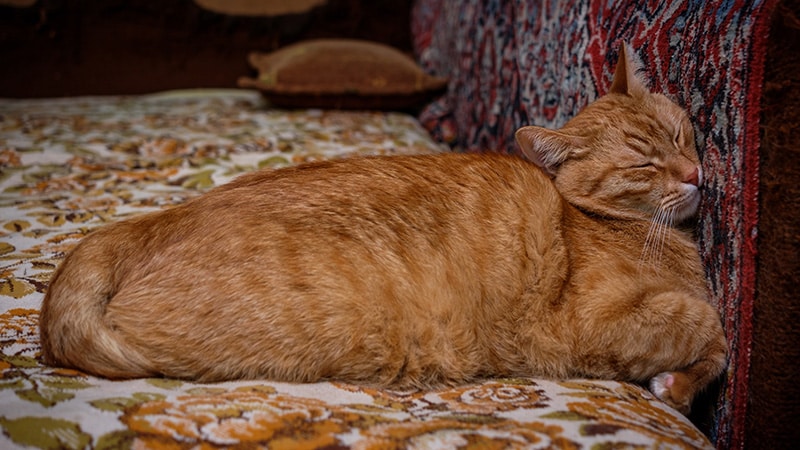
What Are the Signs of Head Pressing in Cats?
The main clinical sign of head pressing will be your cat standing still and holding their head against a solid object such as a wall or piece of furniture.
Due to the fact that the underlying cause is usually affecting the nervous system, other clinical signs relating to nervous tissue damage or dysfunction are often witnessed. These signs can include:
- Walking in circles
- Pacing up and down
- Vocalization
- Behavioral changes
- Flickering of the eye (nystagmus)
- Reduced vision
- Uncoordinated movements
- Tremors
- Seizure activity
If your cat has been head pressing against things for a prolonged period of time, they may also start to develop lesions on their face where they are making contact with the hard surfaces. This may appear as bumps or swellings, patches of redness, hair loss, or open weepy wounds. Sometimes owners will not notice the head pressing, but they do notice the lesions on their cat’s face.
This is why it is always important to visit a vet if you see any injuries as there may be a more complicated reason than meets the eye.
You can also consult a vet online if you need quick and easy access to an expert’s opinion.
If you need to speak with a vet but can't get to one, head over to PangoVet. It's an online service where you can talk to a vet online and get the advice you need for your pet — all at an affordable price!

What Are the Causes of Head Pressing in Cats?
Head pressing in cats is usually a sign of some sort of damage to the nervous system. Many different things can cause this. Some of the more common causes include:
- Toxins: There are numerous different toxins that cats can be exposed to or ingest that cause neurological disorders. These include lily flower plants, antifreeze used in cars, and some dog medications such as flea treatment.
- Infection: Various infectious organisms can cause problems within the nervous system. Bacteria, viruses, fungi, and parasites can all cause infections. Toxoplasmosis is a common parasite infection cats pick up which can be spread to humans too. Neurological signs in cats with toxoplasmosis can vary.
- Encephalitis: Encephalitis means inflammation of the brain tissue. Inflammation causes the brain to swell and important structures within the brain are squashed and do not function properly. The underlying cause of encephalitis needs to be identified before treatment is given.
- Liver disease: The liver removes toxins from the blood. If there is a problem with the liver such as an infection or a shunt, toxins build up—this can cause neurological signs such as head pressing.
- Metabolic disease: Neurological signs can manifest if there are metabolic disturbances that cause too much or too little of certain substances in the blood. For example, low blood sugar can do this, as can too much or too little sodium, calcium, or magnesium.
- Trauma or injury: Any injury or trauma to the brain tissue can cause neurological signs. Blunt trauma to the skull is the main type of injury, but trauma can also occur if there are seizures, or the blood supply is compromised.
- Tumors: Although relatively rare in cats, brain tumors can cause a wide range of neurological signs, including head pressing. Usually, clinical signs develop from excessive pressure placed on important structures in the brain when the tumor grows.
- Stroke: Another uncommon occurrence in cats. A stroke is when the blood supply to the brain is compromised. If parts of the brain become damaged, neurological signs such as head pressing are often seen.
- Hypertension: High blood pressure can cause neurological signs if the blood pressure in the brain gets too high.
Diagnosis of Head Pressing in Cats
A vet will examine your cat thoroughly and take a detailed history from you. They will perform some routine tests including blood pressure monitoring, an eye exam, blood tests, and urinalysis, to check the health status of your cat. Depending on what they find on their clinical exam, they will carry out further diagnostic tests such as X-rays, ultrasound scans, and more specific blood tests.
Advanced imaging modalities such as CT and MRI are often used to diagnose issues within the brain. These are usually carried out at larger referral hospitals.
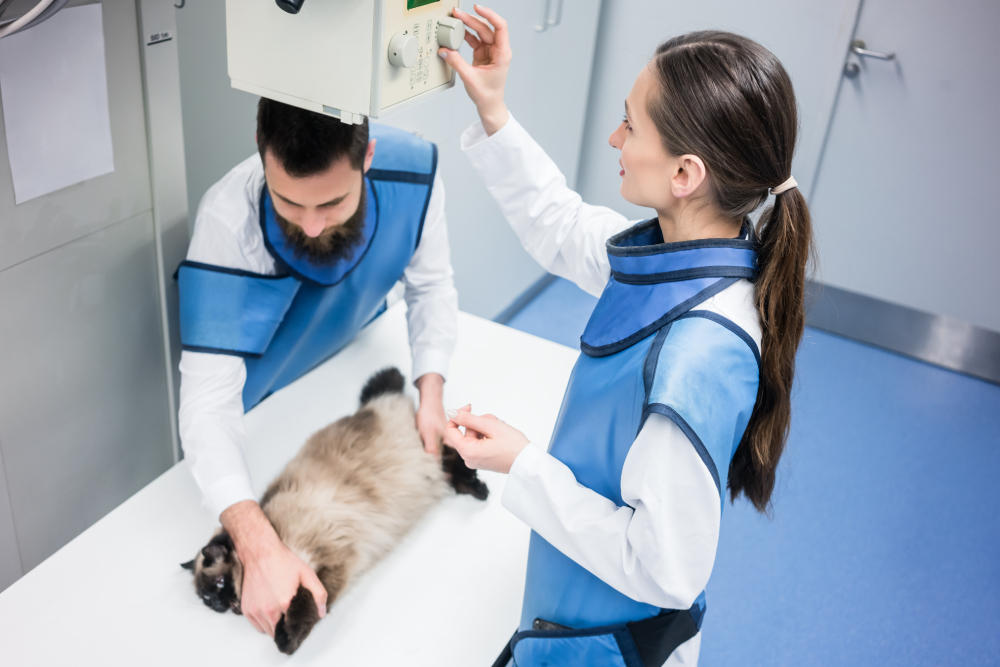
How Do I Care for a Cat that is Head Pressing?
Head pressing in cats is a clinical sign of a disease process. This means that the underlying disease must be identified before any treatment plan is formulated.
Treatment options will involve targeting the cause. Infections can be treated with antibiotics or antifungal medication where indicated. Metabolic disturbances will need to be corrected. Surgical correction is possible for some tumors and liver shunts. Trauma cases may require anti-inflammatories and pain relief. Toxin cases can receive supportive treatment such as intravenous fluid therapy and decontamination practices. A vet will be able to advise you on all of the appropriate treatment options available.

Frequently Asked Questions
What is the difference between head pressing and head butting?
Head pressing in cats is a compulsive action the cat is unable to control. They will stand still and hold or press their head against a hard surface such as a piece of furniture or a wall.
They may seem to be in pain or distress when they head press.
Head butting is a conscious movement where your cat will rub themselves against an object or other animal or human. It is a playful and affectionate act that your cat will appear to enjoy. Your cat will appear relaxed and content.
Often with head pressing, there will be other clinical signs associated with neurological diseases too such as circling, pacing, changes in behavior, and eating habits.
Is my cat in pain if they are head pressing?
There are many different causes of head pressing in cats. Usually, the act of head pressing doesn’t cause your cat pain, but the underlying cause may be painful. For example, if the head pressing has resulted from head trauma, then your cat is likely to be in pain. If your cat has been head pressing for a long period, they may develop sores on their face from the repeated contact when pressing themselves against something. If this is the case, the lesions may cause pain and discomfort as well.
Can head pressing in cats resolve on its own?
Depending on the underlying cause of the head pressing, some cats will stop on their own without any veterinary intervention. Other cases will require medical or surgical management and may never be cured.

Conclusion
Head pressing can often be confused with normal displays of affection from our cats. It is important for owners to be able to identify the difference between head butting and head pressing. If your cat is head pressing, this can be a sign of a range of different neurological disorders. Some can be rectified quickly; others will need long and complex treatments.
It is very important you visit a vet if you see your cat head pressing. Once a vet has identified the underlying cause of the head pressing, they will be able to initiate the most suitable course of treatment. Some conditions will not have a cure, but there may be acceptable management options.
Featured Image Credit: Azovsky, Shutterstock
